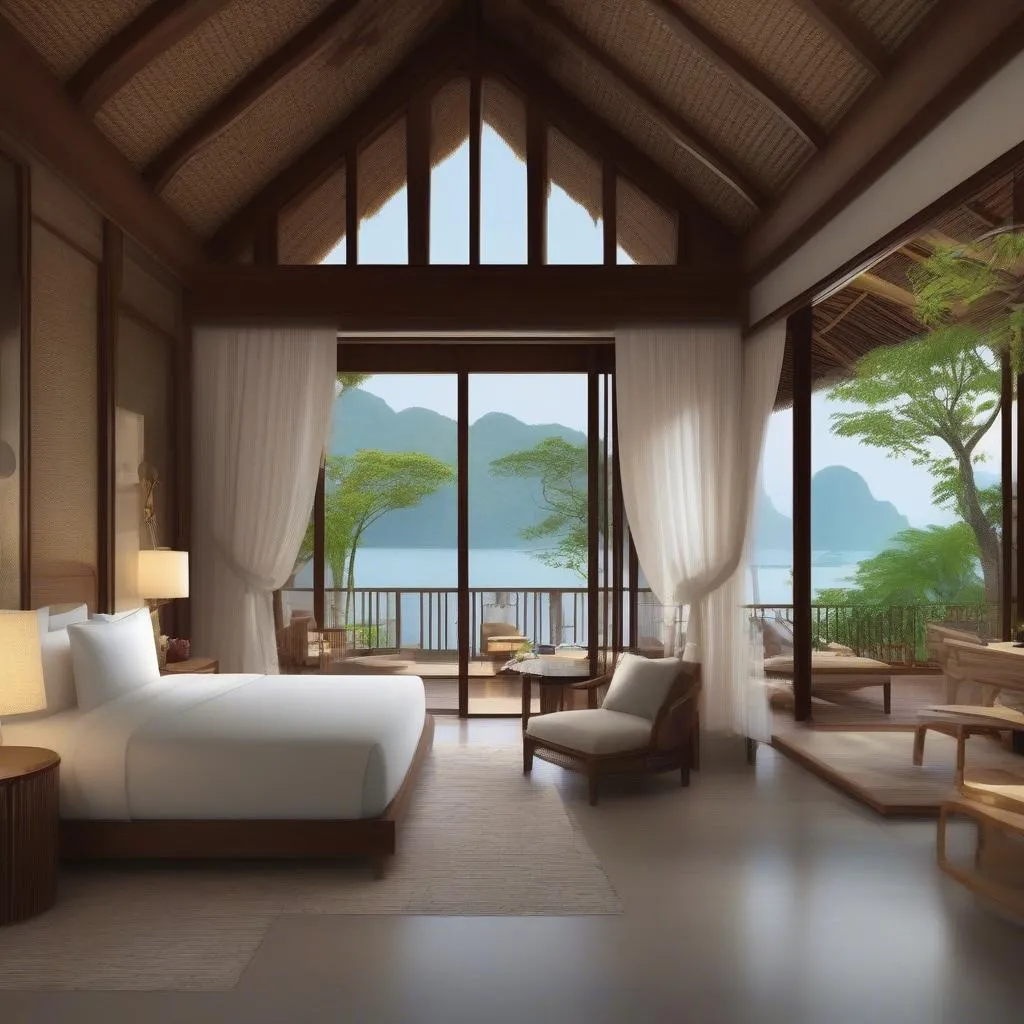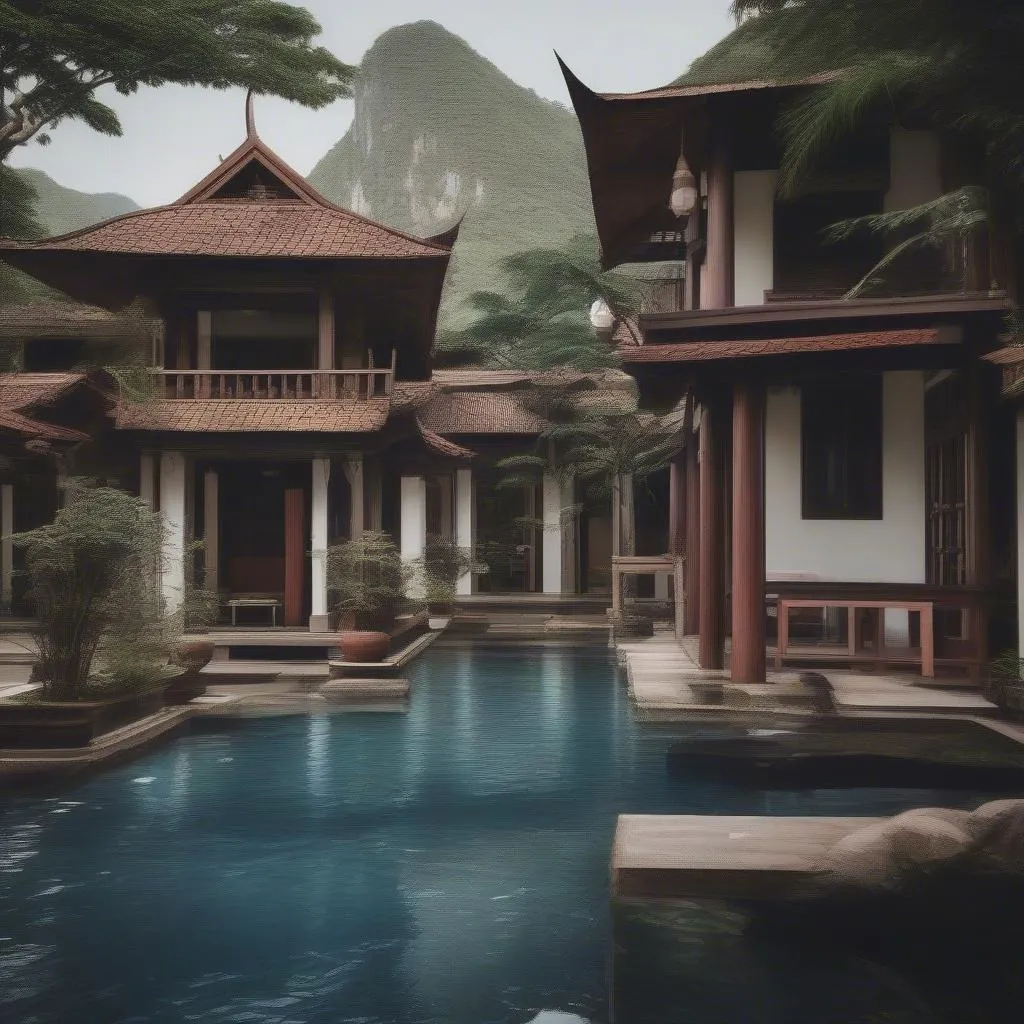“Đi một ngày đàng học một sàng khôn” – a Vietnamese proverb that beautifully translates to “A day of travel is worth a basket of learning.” Vietnam, with its breathtaking landscapes, vibrant culture, and delectable cuisine, has become a sought-after destination for travelers worldwide. But as with any journey, the quality of the experience hinges significantly on the tourism services encountered along the way.
Navigating the Landscape of Vietnamese Tourism Services
Tourism in Vietnam is a dynamic industry, constantly evolving to meet the demands of a diverse range of travelers. From budget backpackers exploring the bustling streets of Hanoi to luxury travelers seeking solace in the serene waters of Ha Long Bay, the spectrum of services caters to a wide array of preferences and budgets.
A Multifaceted Perspective: The Good, The Not-So-Good, and The Exceptional
The Positives:
- Warm Hospitality: Vietnamese people are renowned for their warm and welcoming nature. This genuine hospitality shines through in the service industry, creating a pleasant and memorable experience for visitors.
- Culinary Delights: Vietnamese cuisine is a sensory journey in itself. From street food stalls to high-end restaurants, the quality and diversity of food is a major draw for tourists.
- Value for Money: Compared to many other Southeast Asian destinations, Vietnam offers excellent value for money, especially in terms of accommodation, food, and transportation.
Areas for Improvement:
- Language Barriers: While English is increasingly spoken in tourist hubs, communication can be a challenge in more rural areas.
- Infrastructure Inconsistencies: While major cities boast modern infrastructure, some rural areas still grapple with underdeveloped roads and transportation networks.
- Sustainability Concerns: The rapid growth of tourism has raised concerns about its environmental impact. Some operators are lagging in implementing sustainable practices.
Shining Examples:
Amidst the diverse landscape of tourism services, there are shining examples of excellence that exemplify the best of what Vietnam has to offer:
- Six Senses Ninh Van Bay: This luxury resort embodies sustainable practices and offers unparalleled service amidst breathtaking natural beauty.
- Victoria Cruises Halong Bay: Renowned for its impeccable service and luxurious cruises, Victoria Cruises offers a memorable way to experience the iconic Halong Bay.
- Hoi An Trails: This award-winning tour operator provides authentic and responsible cultural experiences, showcasing the rich heritage of Hoi An.
 Luxury Eco-Resort
Luxury Eco-Resort
Planning Your Journey: Tips for a Seamless Experience
- Research and Book in Advance: Especially during peak season, booking accommodations, tours, and transportation in advance is crucial.
- Learn Basic Vietnamese Phrases: Even a few basic phrases can go a long way in bridging the communication gap and enhancing interactions.
- Embrace Local Transportation: Opting for local buses, trains, and motorbike taxis can be an adventurous and cost-effective way to explore.
- Support Sustainable Tourism: Choose eco-friendly accommodations and tour operators that prioritize responsible practices.
FAQs: Addressing Common Queries
What is the best time to visit Vietnam? Vietnam has a diverse climate. The best time to visit depends on the region and your preferences. Generally, Spring (February-April) and Autumn (September-November) offer pleasant weather throughout the country.
Is it safe to travel alone in Vietnam? Vietnam is generally a safe country for solo travelers. However, as with any destination, it’s important to exercise common sense and take precautions to ensure your safety.
How much does a trip to Vietnam cost? The cost of a trip to Vietnam varies widely depending on your travel style, accommodation choices, and activities.
The Influence of Feng Shui in Vietnamese Tourism
Feng Shui, the ancient Chinese practice of harmonizing environments, has a subtle yet significant influence on Vietnamese architecture and design. Many hotels and resorts incorporate Feng Shui principles to create a sense of balance and tranquility. For instance, the placement of water features, the orientation of buildings, and the use of specific colors and materials are often guided by Feng Shui beliefs.
 Feng Shui Inspired Hotel
Feng Shui Inspired Hotel